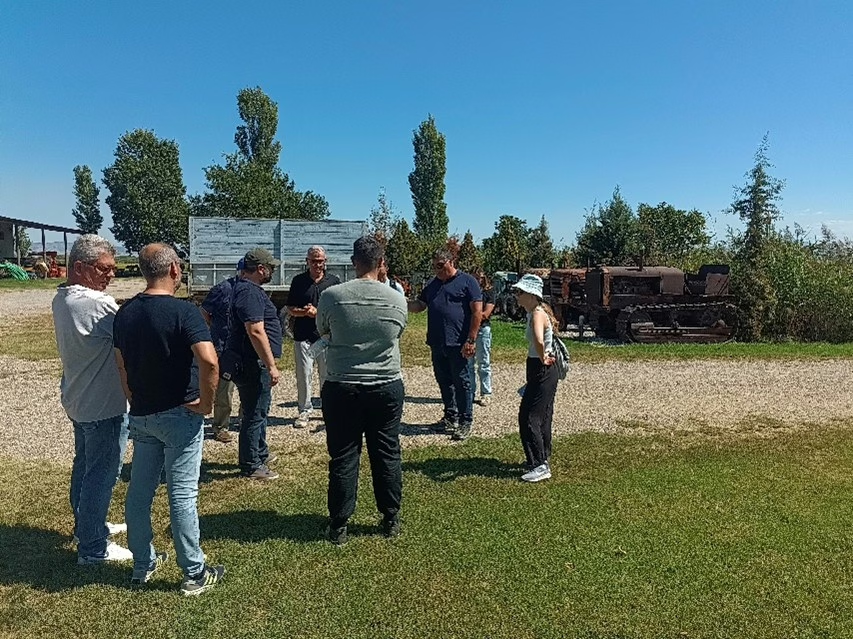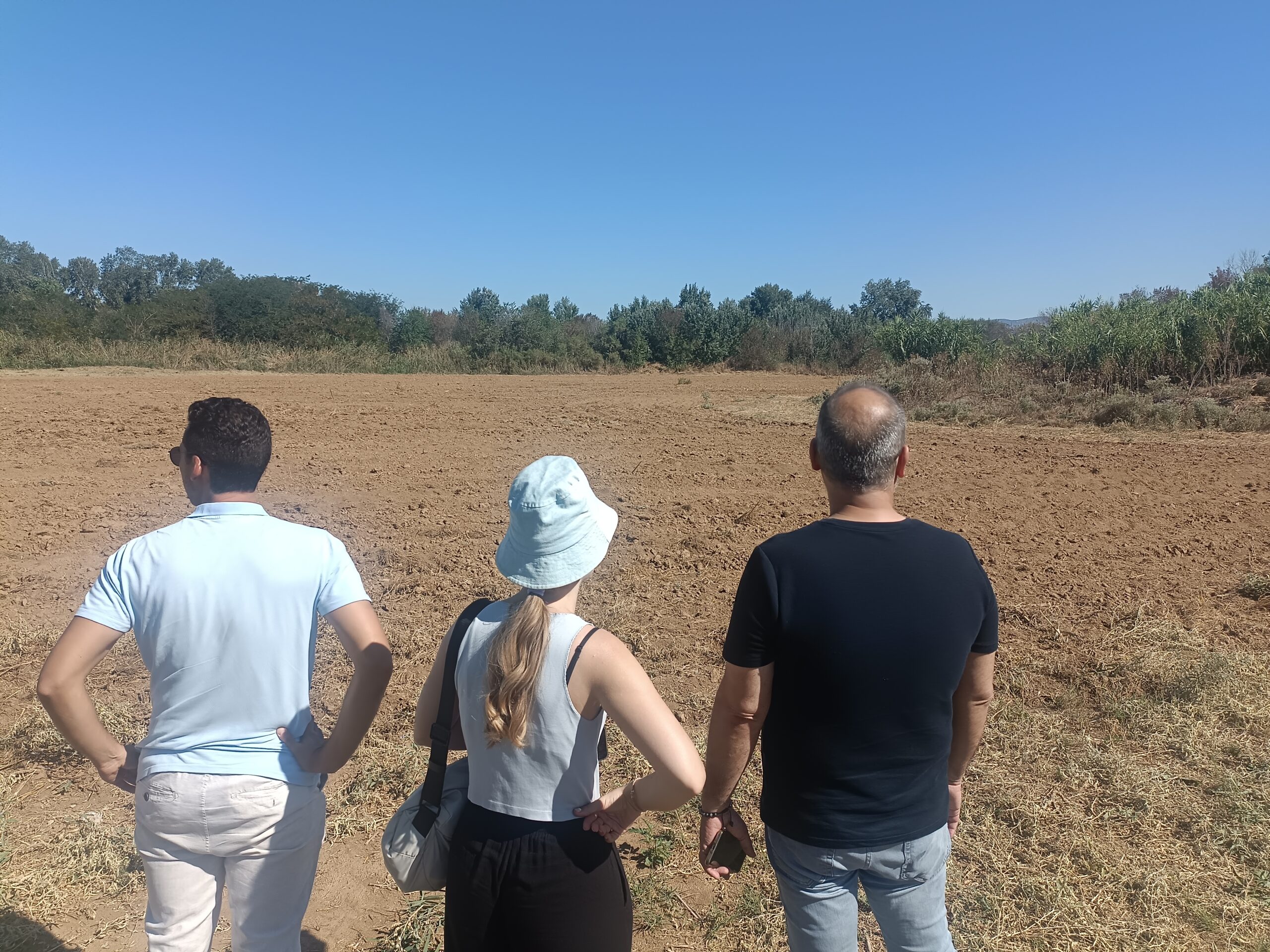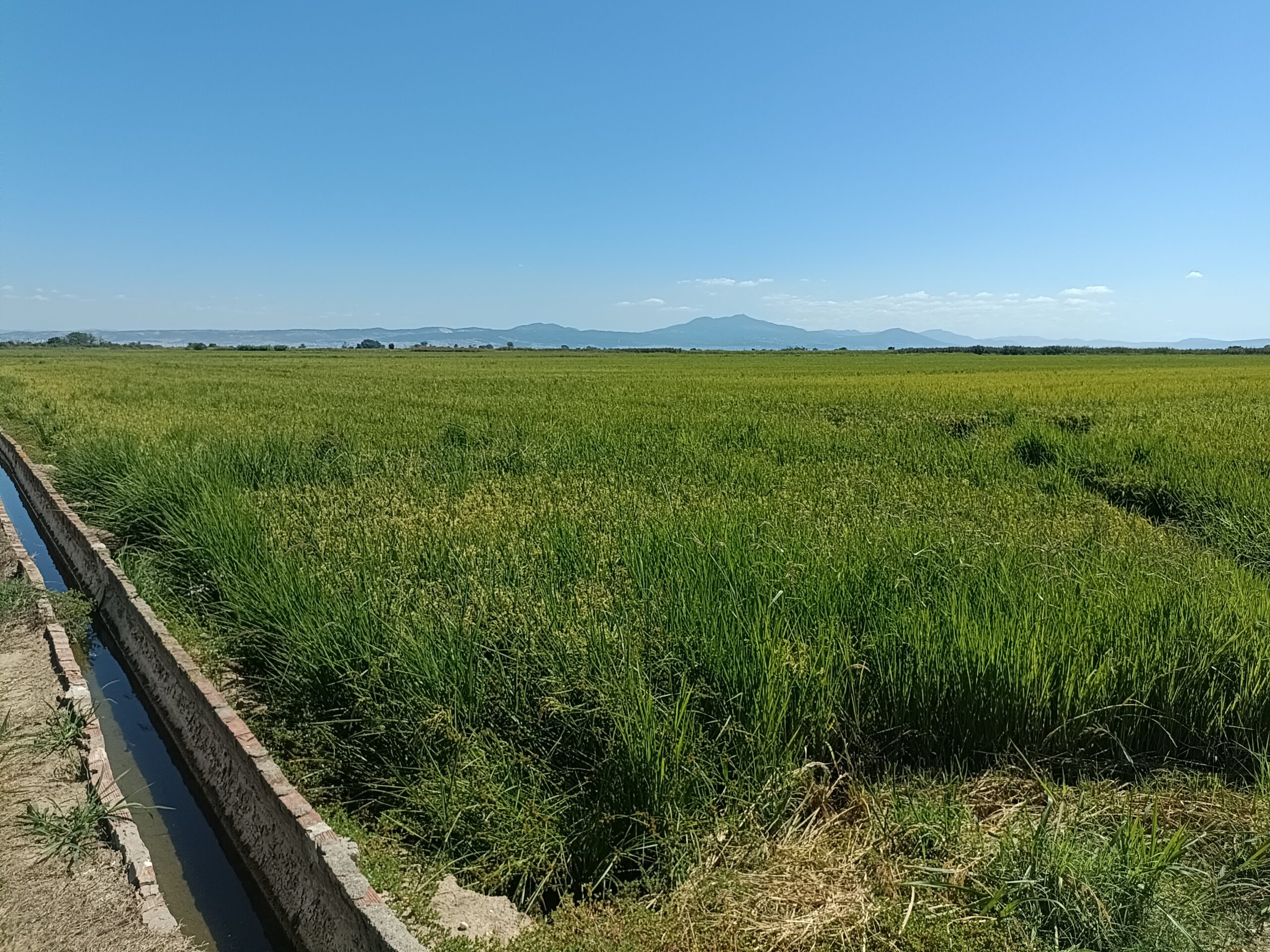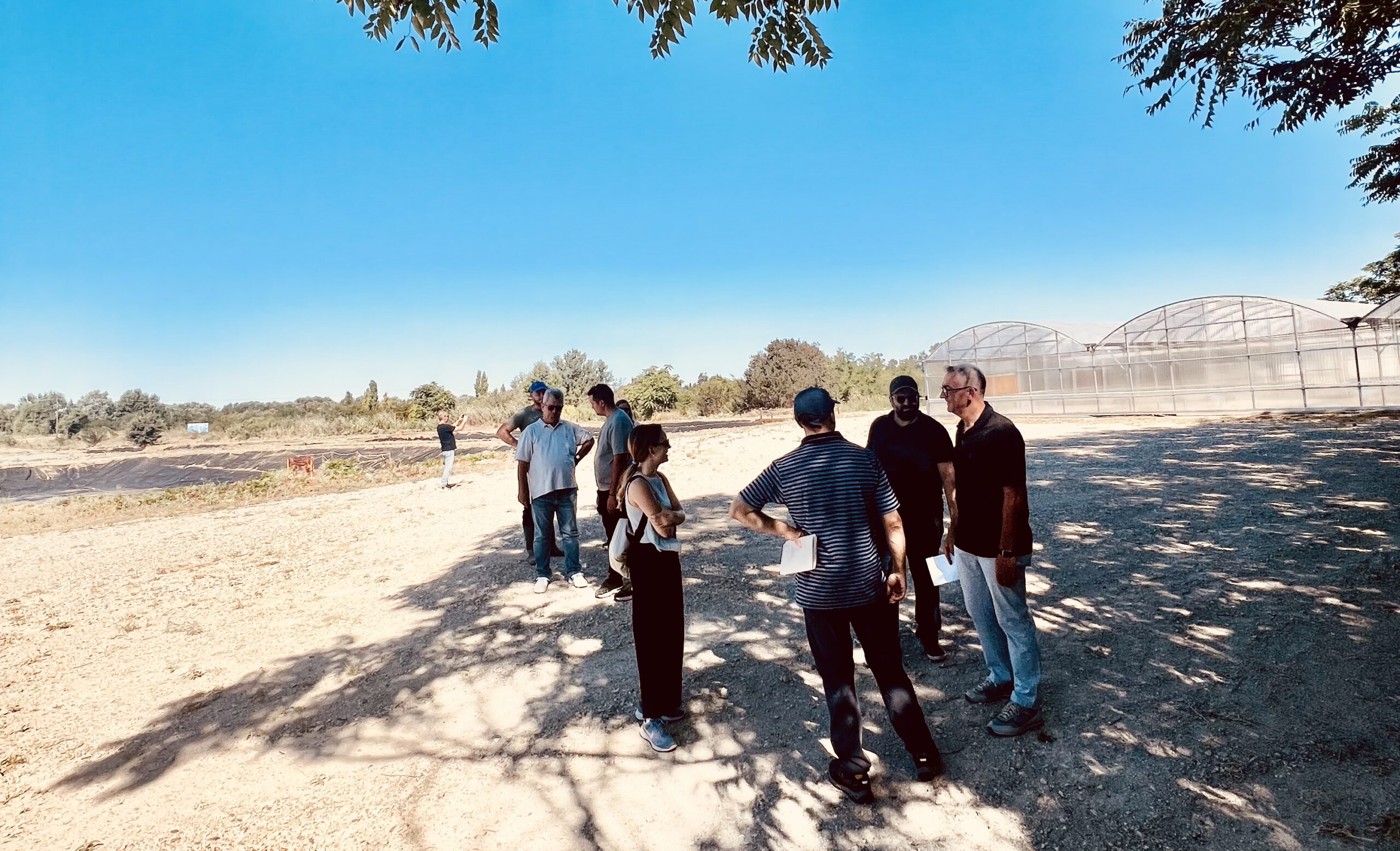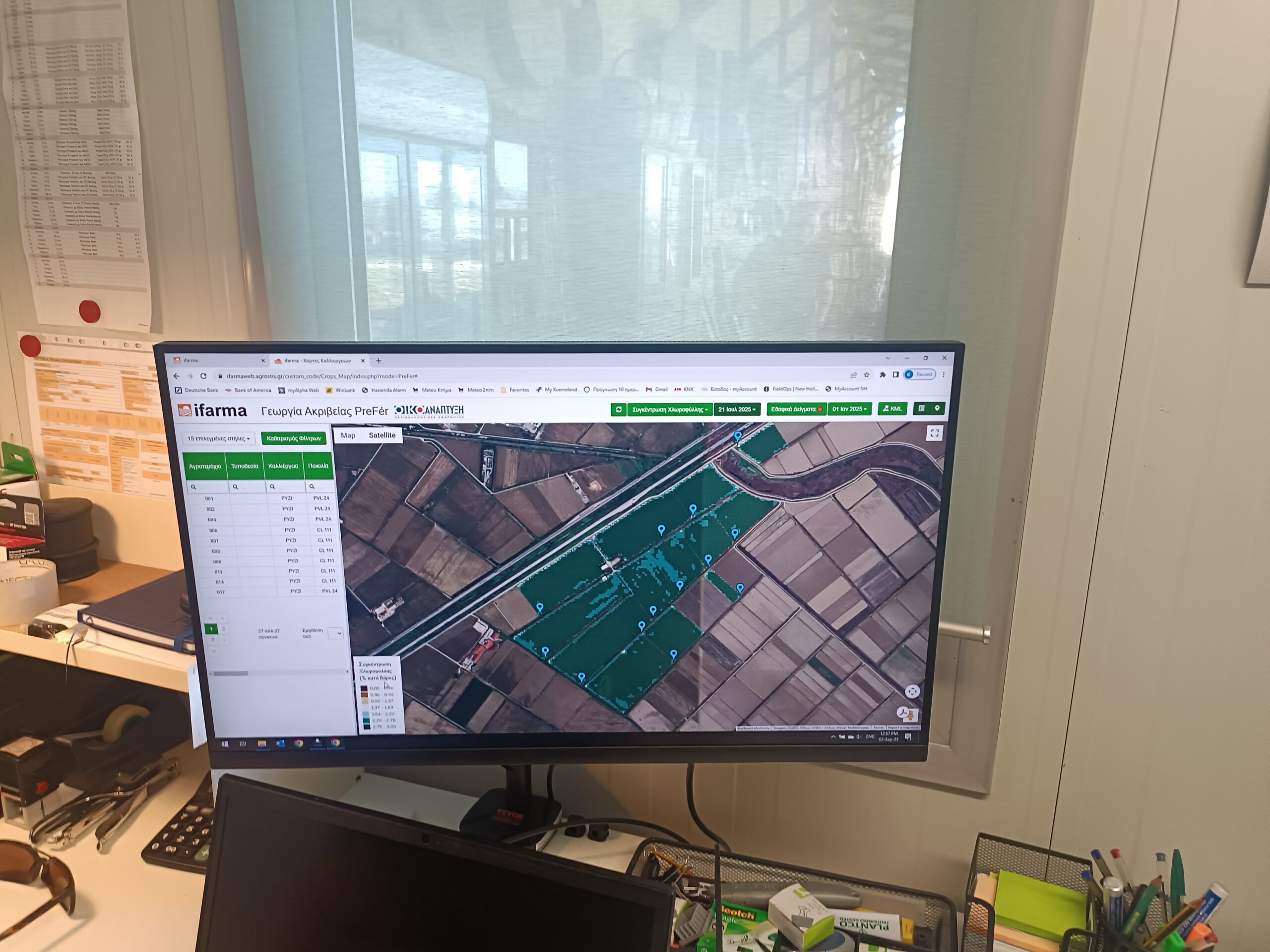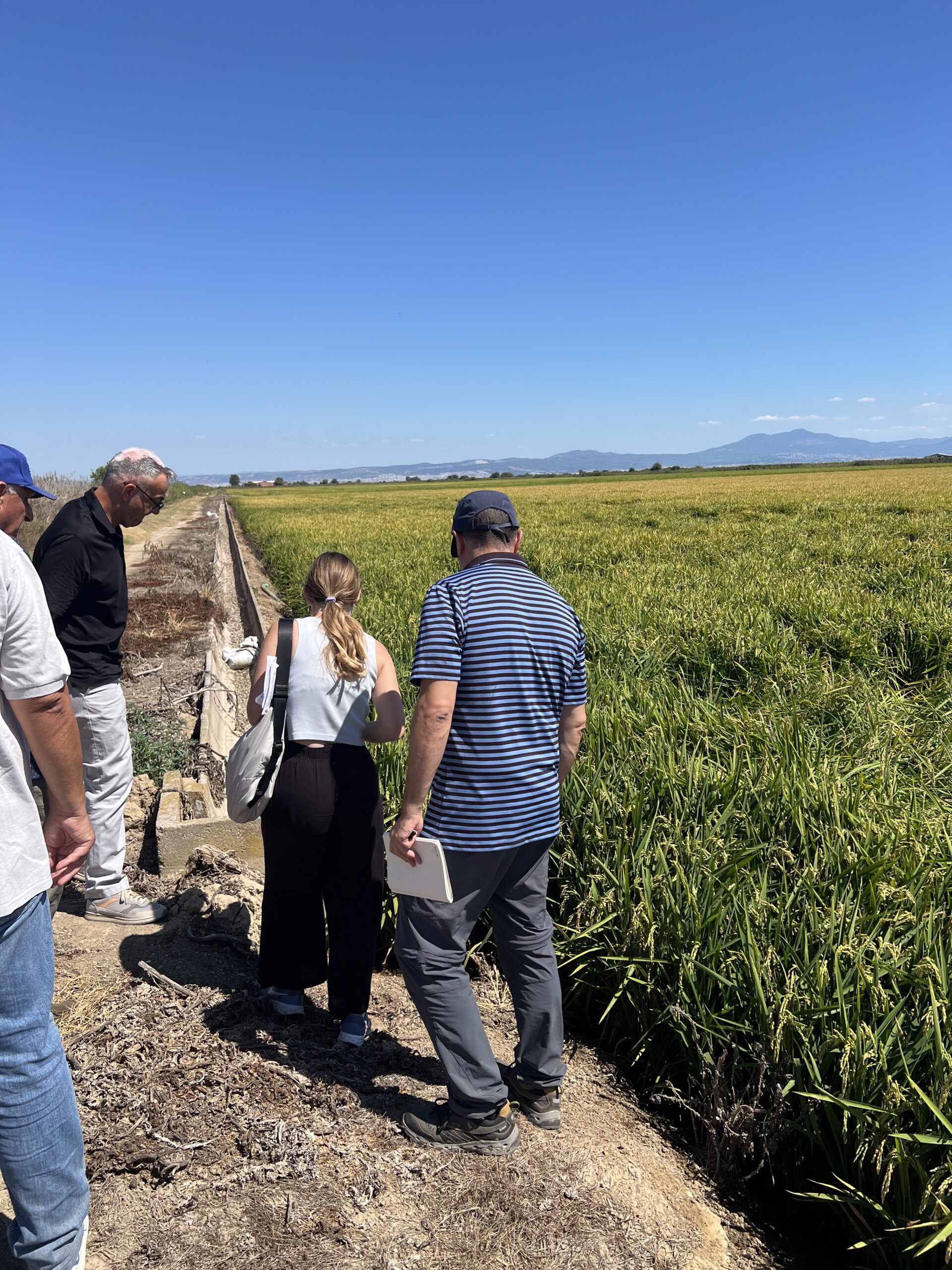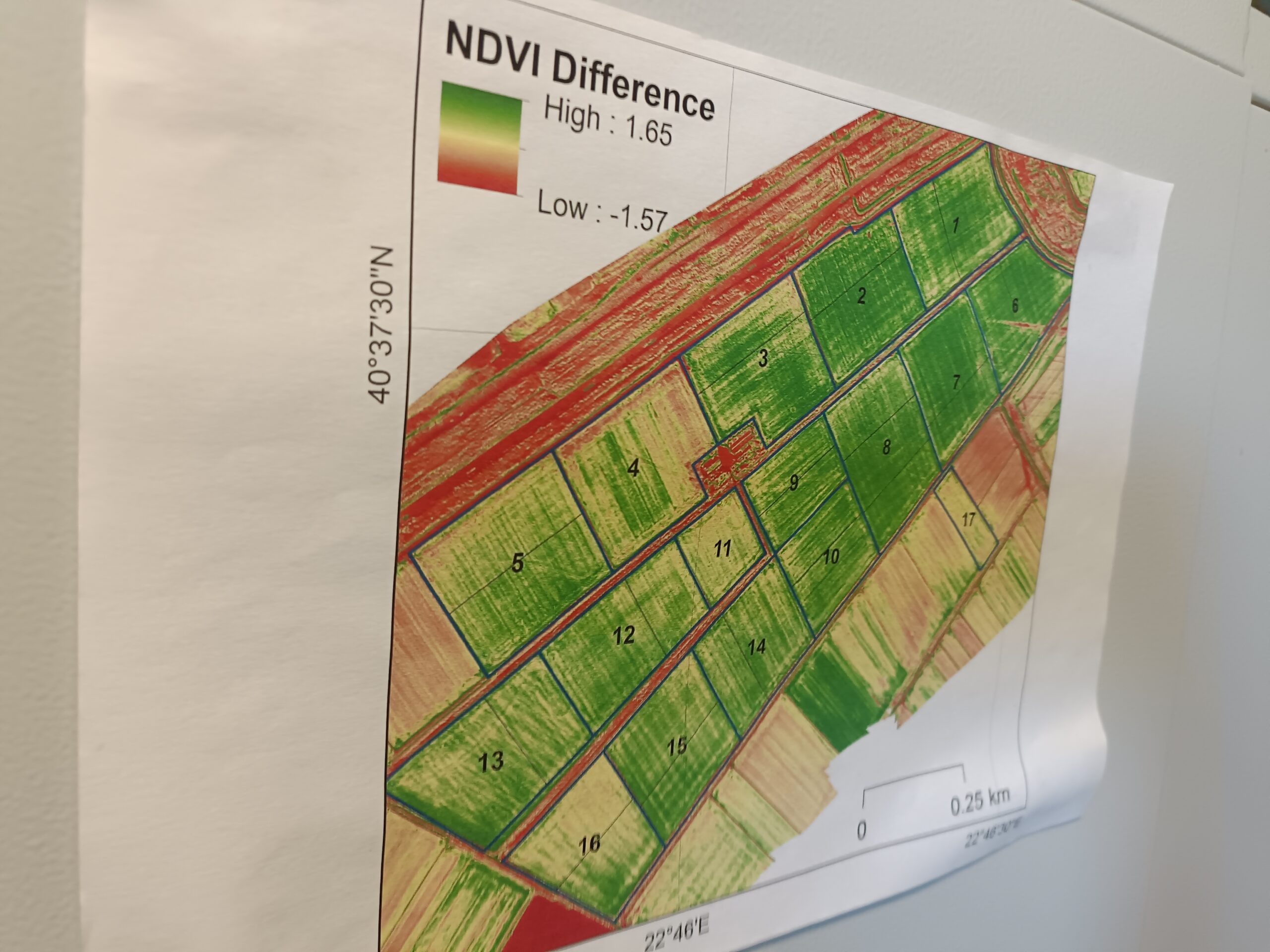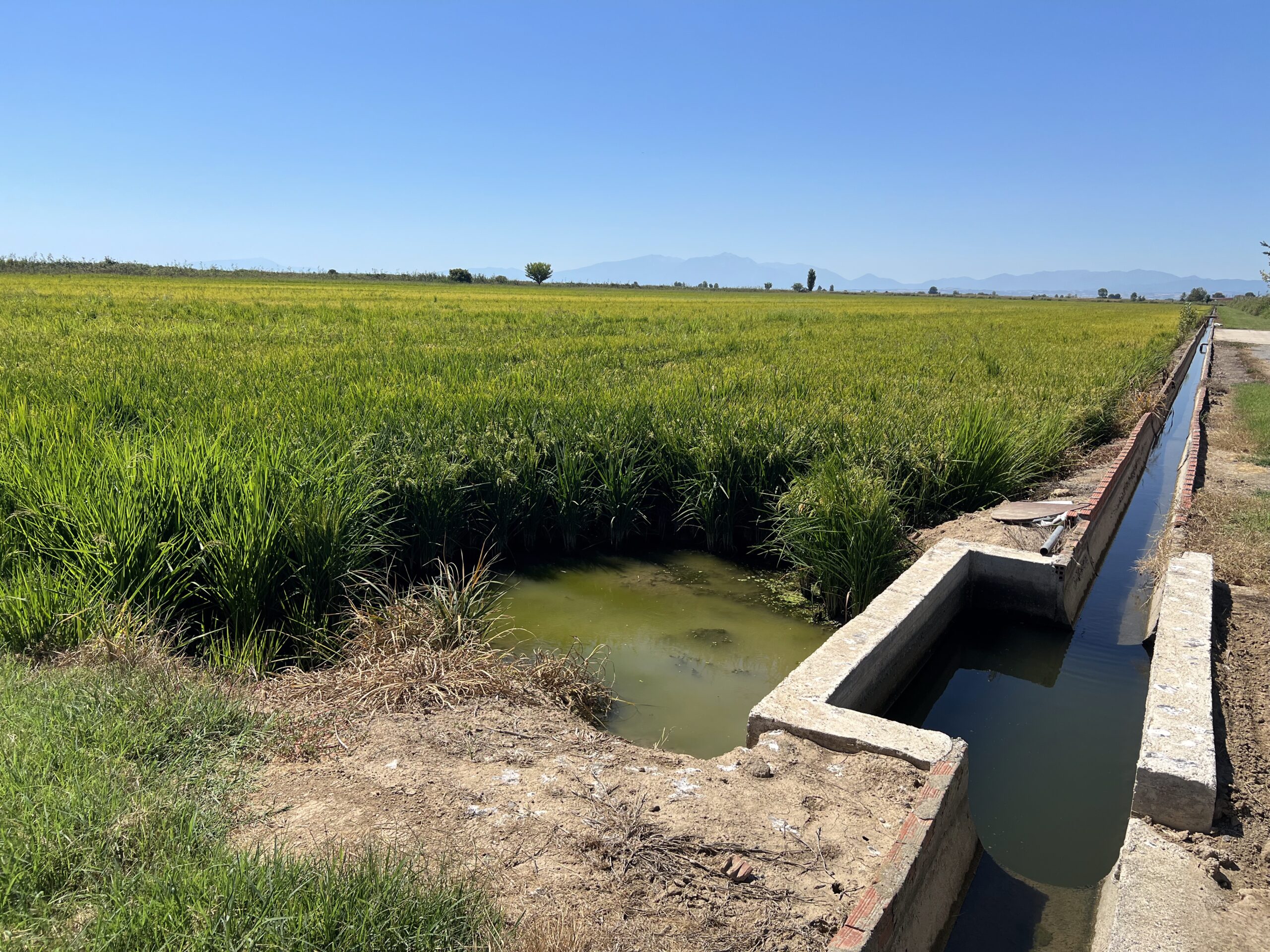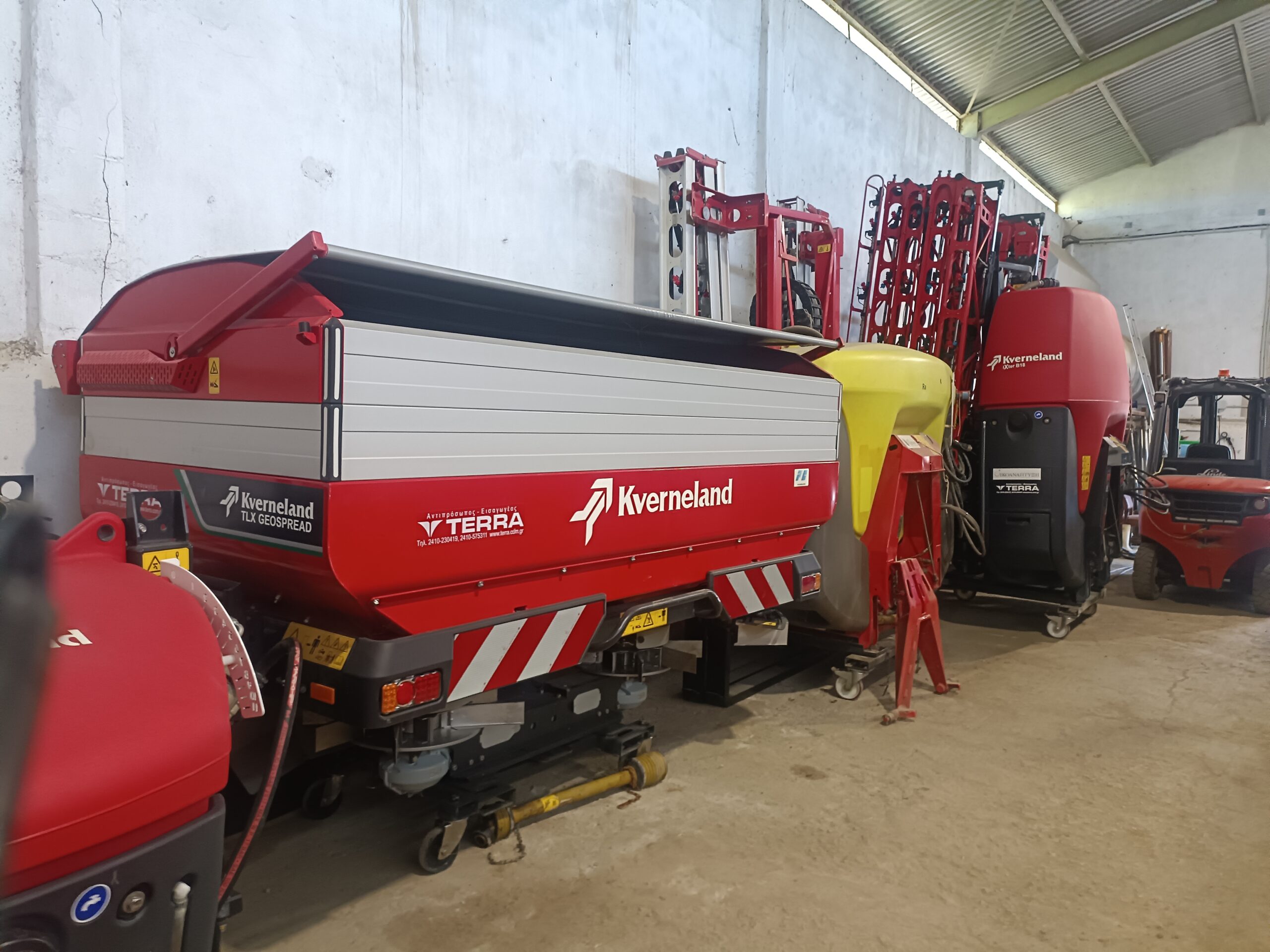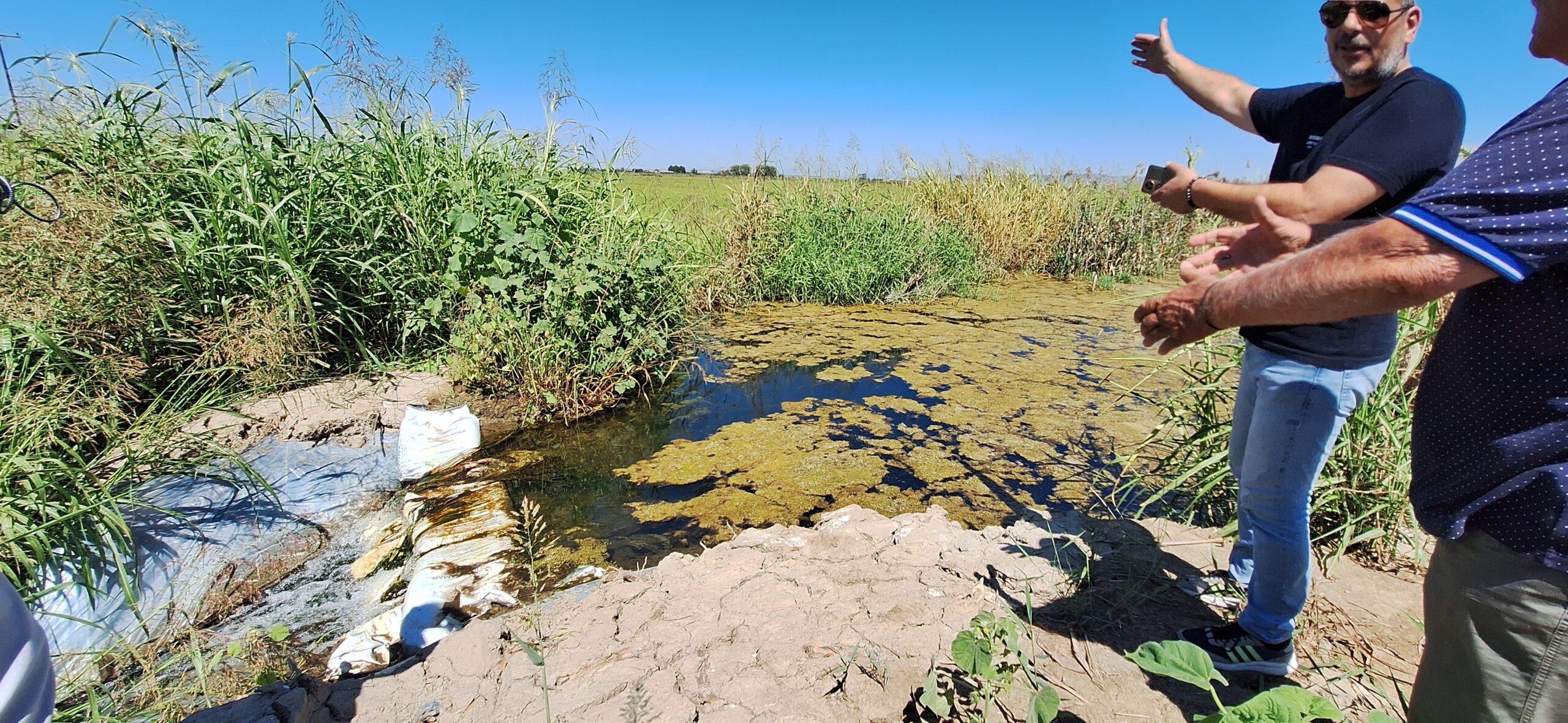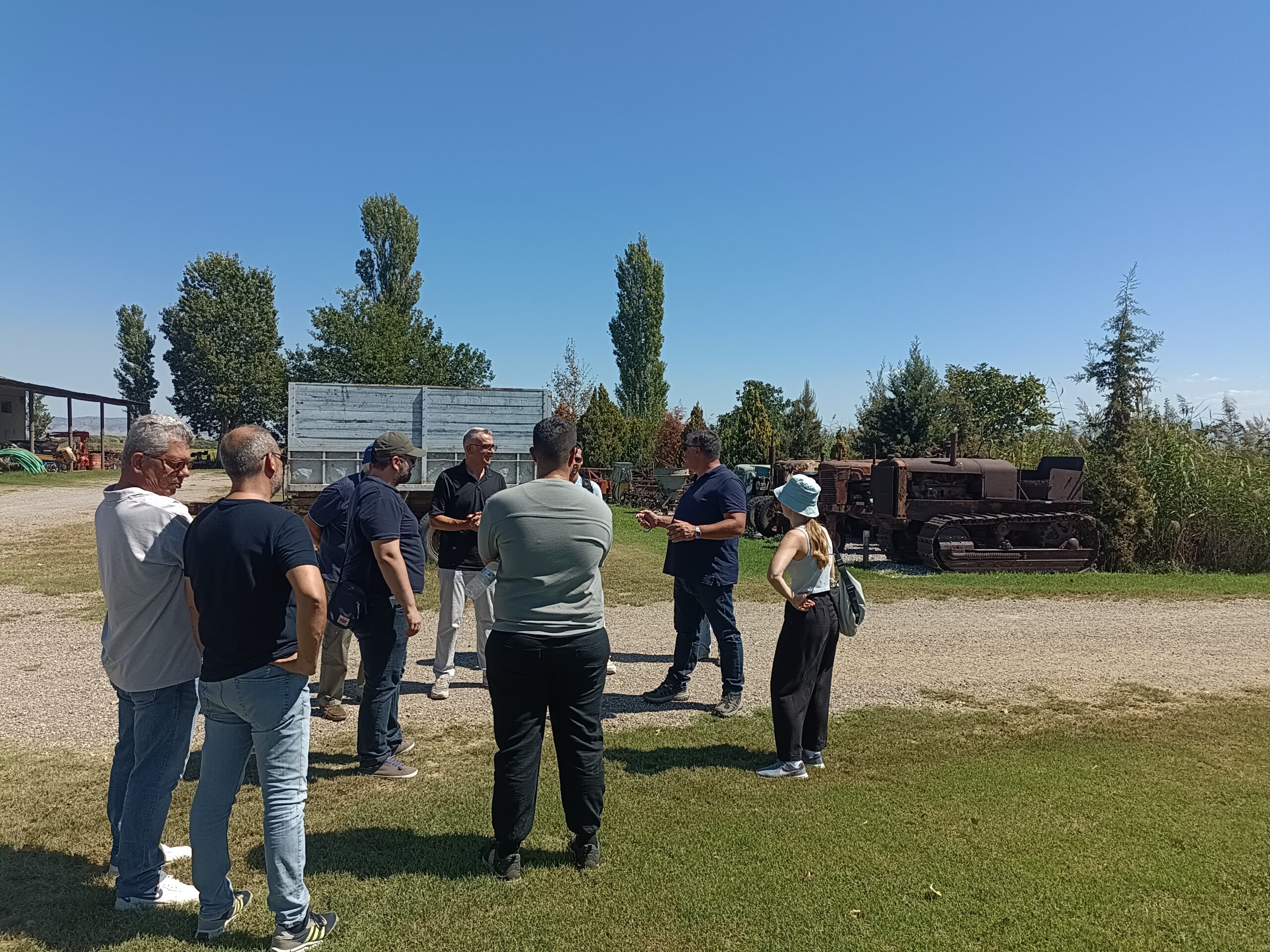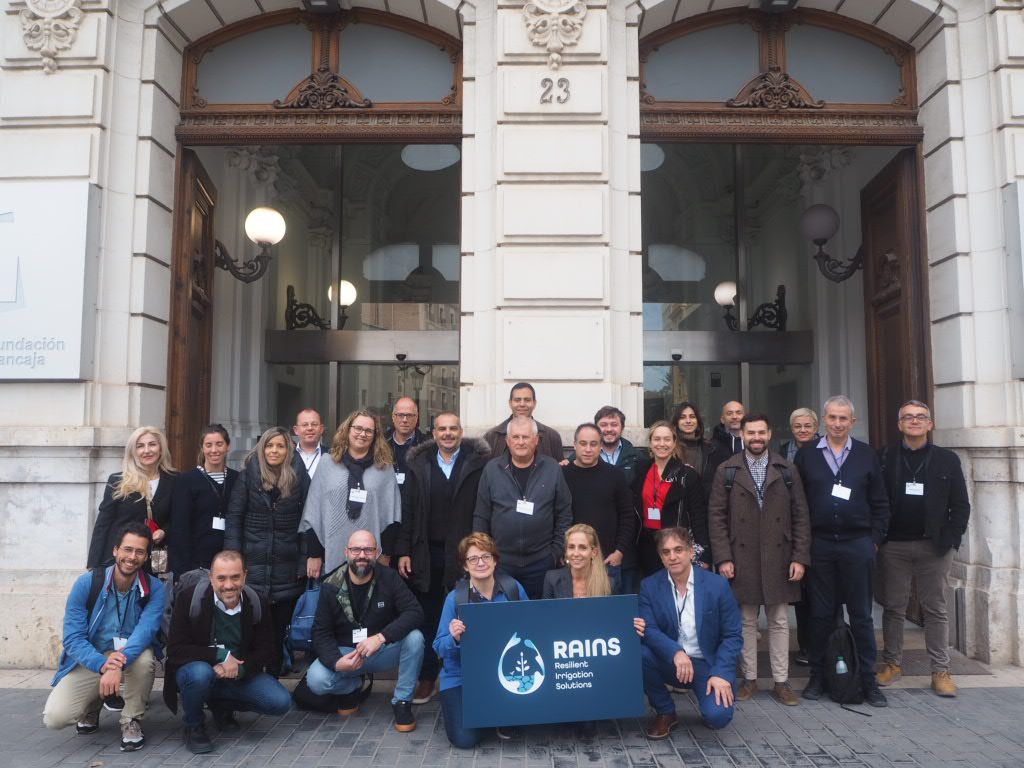
Last week, the CEIGRAM-ETSIAAB-UPM team (Luis Lassaletta, Vasiliki Barou), together with Raúl Moral from Miguel Hernández University (UMH) and Alfredo Rodríguez from the University of Castilla la Mancha (UCLM), made a technical visit to Greece as part of the RAINS project. The main objective was to gain a deeper understanding of how agricultural systems work in the Greek research area and to analyse the solutions being implemented directly in the field.
In Thessaloniki, the team from the Hellenic Agricultural Organisation (ELGO) (Vasileios Takavakoglou, Vassilis Aschonitis, Marios Tzimas, Eleanna Pana, Maria-Lida Christou), accompanied by research director Georgios Arampatzis, presented the research centre’s facilities. ELGO’s land is currently being prepared to host demos 2 and 3 of the project, focusing on vegetable and cereal cultivation. These trials will apply solutions based on reused wastewater, sewage sludge and smart technologies such as WaterIQ and Optifangs-IA, aimed at improving water and nutrient use and optimising decision-making in agronomic management.
The visit continued in the Chalastra area, within the Axios river basin, one of the project’s areas of interest. There, the group toured the rice fields of Kostas Kravvas, recognised not only as one of Greece’s leading rice producers, but also as a benchmark in agricultural innovation. Kostas Kravvas applies precision agriculture and advanced technologies to optimise production. His firm commitment to innovation and his willingness to collaborate on research projects demonstrate how the joint application of scientific knowledge and practical experience can generate mutual benefits, driving both technological advancement and productivity improvements in the field.
In Chalastra, the Axios Delta irrigation network was also visited, guided by Georgios Kanakas, president of the Local Land Recovery Organisation. During the tour, they received a detailed explanation of the system for channelling water from the river to agricultural plots, strategies for storage and reuse in times of water scarcity, and the flow of water to the mouth of the Axios, where aquaculture activities are carried out.
Finally, the visit concluded with a meeting with Manos Lekakis from AgroApps, who gave an in-depth presentation on the WaterIQ smart solution, designed to assist farmers in making real-time decisions on efficient water management and soil health.
The visits to the research area in Greece strengthened collaboration between the RAINS Project partners and provided first-hand knowledge of the region’s agricultural practices and water challenges, which are largely common to Mediterranean countries. The UPM, in collaboration with the UMH, Leiden University and the UCLM, will analyse the potential of the solutions studied when scaled up to the regional and basin level by modelling alternative management scenarios and spatialising water and nutrient balances. These exchanges in the field are essential for fostering dialogue between science and agricultural production and moving towards more sustainable production systems in terms of water and nutrient balance, addressing some of today’s major climate challenges.
